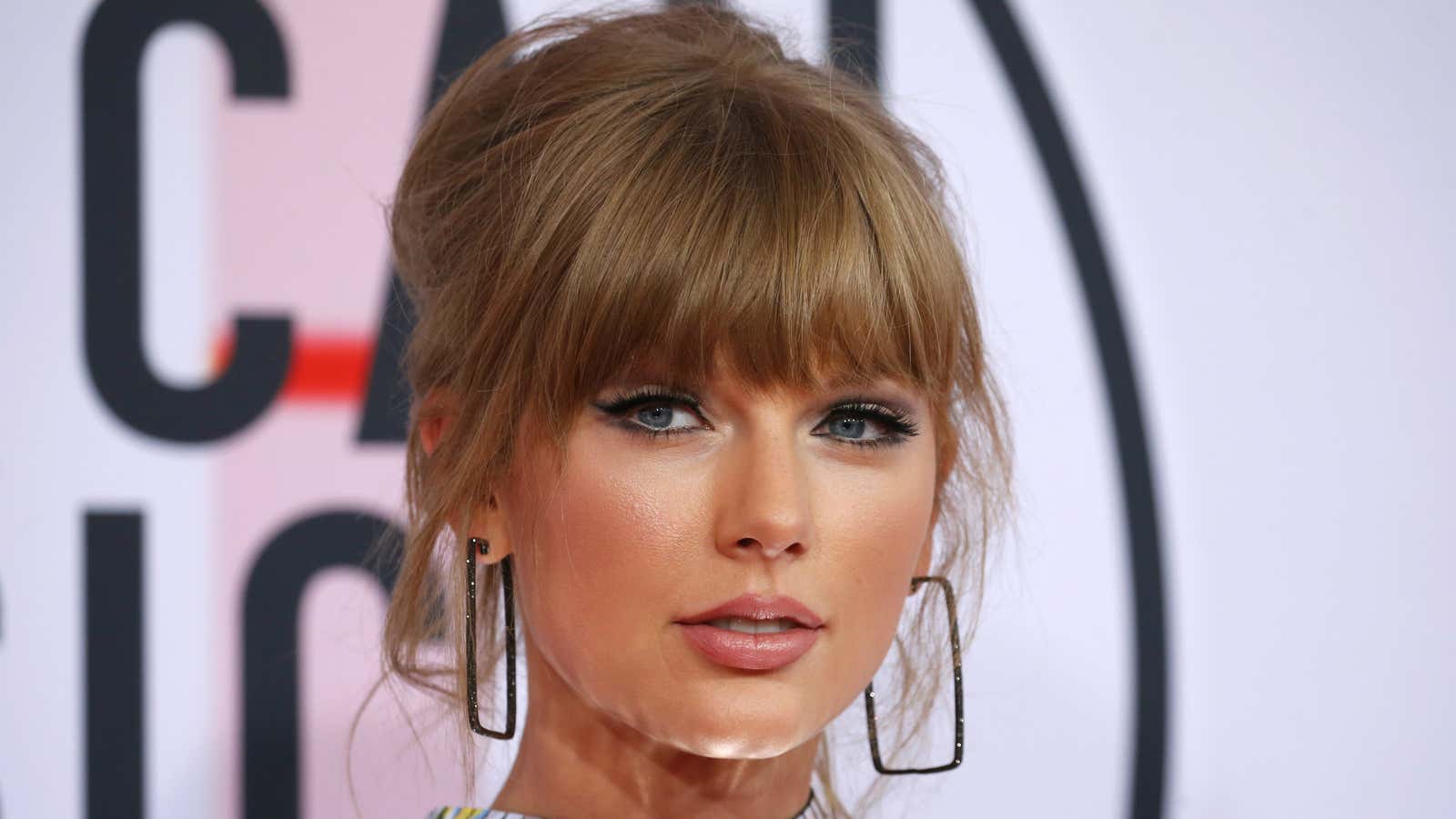If a popular artist sells out their show, they have likely made a big mistake. Although sold out concerts sound good and are often used to assess the success of an event, they are mostly just a sign that prices were set too low. The winner is not the artist or the fans, but scalpers and ticket resale companies like StubHub.
Very few people know this like Taylor Swift. On her 2015 tour, Swift sold out nearly all her shows, many of them soon after tickets were released. Yet many of those tickets ended up getting resold on ticket resale sites like Stubhub and SeatGeek. For example, a scalper might buy a ticket for $100 and resell it for $300. The $200 profit the scalper made, as well as the fees netted by the third party websites, should have been money in Swift’s pocket. A Financial Times analysis found that Swift lost out on about $150 million dollars in revenue from selling her tickets below market value on that tour (paywall).
Swift, who seems as good a businessperson as she is a pop artist, was fed up. For her 2018 tour, Swift worked with ticket sales company Ticketmaster to make sure sure she recouped those lost dollars. In order to make sure real fans were able to get tickets for reasonable prices, Swift used TicketMaster’s Verified Fan platform, which uses online data to try to make sure that people buying tickets are actual fans. For those tickets not sold to through Verified Fan, Swift hiked up prices. The prices for some seats were so high—more than $700 a pop for general admission tickets at some shows —that they weren’t sold.
Although some naive critics derided the tour as a “disaster” for not selling out, Swift is laughing all the way to the bank. The Financial Times estimates that Swift made an additional $1.4 million per show on her 2018 tour as a result of the changes compared to 2015. Overall, Swift made an extra $50 million dollars, according to the FT’s analysis. This is despite the fact that, on average, over 600 tickets were still available at the time of each show. Ticketmaster says that 30% of the tickets for Swift’s 2015 tour went on to the resale market, versus 5% of tickets for this year’s tour dates.
The law of supply and demand is tough to defeat. Taylor Swift isn’t fighting against it anymore, and is much the better for it.
